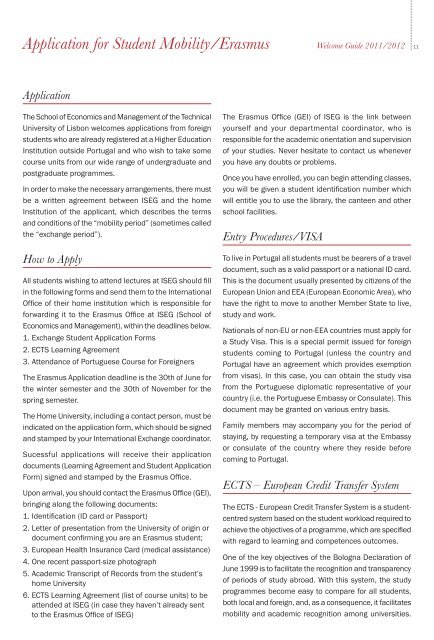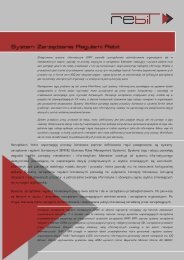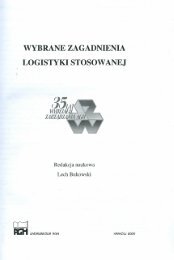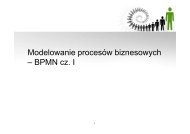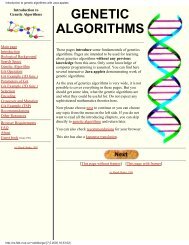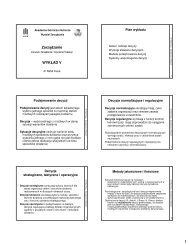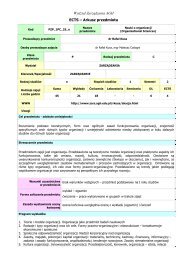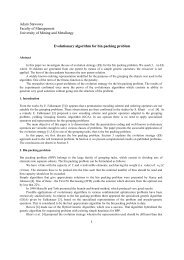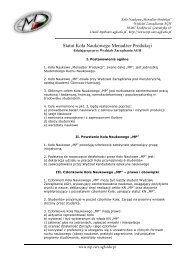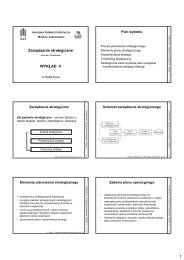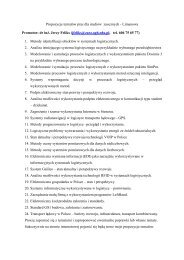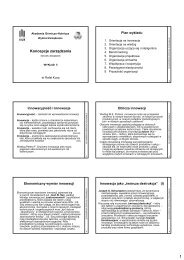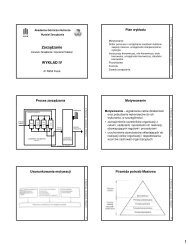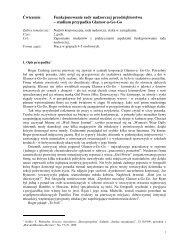Guide - Instituto Superior de Economia e Gestão
Guide - Instituto Superior de Economia e Gestão
Guide - Instituto Superior de Economia e Gestão
Create successful ePaper yourself
Turn your PDF publications into a flip-book with our unique Google optimized e-Paper software.
Application for Stu<strong>de</strong>nt Mobility/Erasmus<br />
Welcome <strong>Gui<strong>de</strong></strong> 2011/2012 11<br />
Application<br />
The School of Economics and Management of the Technical<br />
University of Lisbon welcomes applications from foreign<br />
stu<strong>de</strong>nts who are already registered at a Higher Education<br />
Institution outsi<strong>de</strong> Portugal and who wish to take some<br />
course units from our wi<strong>de</strong> range of un<strong>de</strong>rgraduate and<br />
postgraduate programmes.<br />
In or<strong>de</strong>r to make the necessary arrangements, there must<br />
be a written agreement between ISEG and the home<br />
Institution of the applicant, which <strong>de</strong>scribes the terms<br />
and conditions of the “mobility period” (sometimes called<br />
the “exchange period”).<br />
How to Apply<br />
All stu<strong>de</strong>nts wishing to attend lectures at ISEG should fill<br />
in the following forms and send them to the International<br />
Office of their home institution which is responsible for<br />
forwarding it to the Erasmus Office at ISEG (School of<br />
Economics and Management), within the <strong>de</strong>adlines below.<br />
1. Exchange Stu<strong>de</strong>nt Application Forms<br />
2. ECTS Learning Agreement<br />
3. Attendance of Portuguese Course for Foreigners<br />
The Erasmus Application <strong>de</strong>adline is the 30th of June for<br />
the winter semester and the 30th of November for the<br />
spring semester.<br />
The Home University, including a contact person, must be<br />
indicated on the application form, which should be signed<br />
and stamped by your International Exchange coordinator.<br />
Sucessful applications will receive their application<br />
documents (Learning Agreement and Stu<strong>de</strong>nt Application<br />
Form) signed and stamped by the Erasmus Office.<br />
Upon arrival, you should contact the Erasmus Office (GEI),<br />
bringing along the following documents:<br />
1. I<strong>de</strong>ntification (ID card or Passport)<br />
2. Letter of presentation from the University of origin or<br />
document confirming you are an Erasmus stu<strong>de</strong>nt;<br />
3. European Health Insurance Card (medical assistance)<br />
4. One recent passport-size photograph<br />
5. Aca<strong>de</strong>mic Transcript of Records from the stu<strong>de</strong>nt’s<br />
home University<br />
6. ECTS Learning Agreement (list of course units) to be<br />
atten<strong>de</strong>d at ISEG (in case they haven’t already sent<br />
to the Erasmus Office of ISEG)<br />
The Erasmus Office (GEI) of ISEG is the link between<br />
yourself and your <strong>de</strong>partmental coordinator, who is<br />
responsible for the aca<strong>de</strong>mic orientation and supervision<br />
of your studies. Never hesitate to contact us whenever<br />
you have any doubts or problems.<br />
Once you have enrolled, you can begin attending classes,<br />
you will be given a stu<strong>de</strong>nt i<strong>de</strong>ntification number which<br />
will entitle you to use the library, the canteen and other<br />
school facilities.<br />
Entry Procedures/VISA<br />
To live in Portugal all stu<strong>de</strong>nts must be bearers of a travel<br />
document, such as a valid passport or a national ID card.<br />
This is the document usually presented by citizens of the<br />
European Union and EEA (European Economic Area), who<br />
have the right to move to another Member State to live,<br />
study and work.<br />
Nationals of non-EU or non-EEA countries must apply for<br />
a Study Visa. This is a special permit issued for foreign<br />
stu<strong>de</strong>nts coming to Portugal (unless the country and<br />
Portugal have an agreement which provi<strong>de</strong>s exemption<br />
from visas). In this case, you can obtain the study visa<br />
from the Portuguese diplomatic representative of your<br />
country (i.e. the Portuguese Embassy or Consulate). This<br />
document may be granted on various entry basis.<br />
Family members may accompany you for the period of<br />
staying, by requesting a temporary visa at the Embassy<br />
or consulate of the country where they resi<strong>de</strong> before<br />
coming to Portugal.<br />
ECTS – European Credit Transfer System<br />
The ECTS - European Credit Transfer System is a stu<strong>de</strong>ntcentred<br />
system based on the stu<strong>de</strong>nt workload required to<br />
achieve the objectives of a programme, which are specified<br />
with regard to learning and competences outcomes.<br />
One of the key objectives of the Bologna Declaration of<br />
June 1999 is to facilitate the recognition and transparency<br />
of periods of study abroad. With this system, the study<br />
programmes become easy to compare for all stu<strong>de</strong>nts,<br />
both local and foreign, and, as a consequence, it facilitates<br />
mobility and aca<strong>de</strong>mic recognition among universities.


